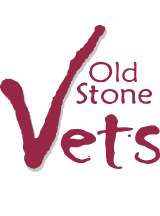
Farm animals

All our vets are mixed practice vets, hence we all do large animal or farm work as well as small animal work in clinics. We provide a full 24hr farm service, providing services from fertility scanning to foot trimming and herd and flock health planning. We aim to provide a personal service with a sense of understanding of what your farm needs to go forward and progress in the direction you see most beneficial.

We have our three surgeries ideally located to cover the wide area of North East Cumbria, West County Durham, and the Allen Valleys of Northumberland. Having a vet at each surgery morning and evening allows us to attend routine planned visits easily, but we are able to cover the whole area for emergency work should the need arise 24hrs a day.
At our Alston surgery the large animal treatment room allows us to lamb sheep, perform caesarians on sheep, examine calves, drip calves as necessary, semen assessment of Tups/Rams as well as other treatment and surgery on calves, sheep and pigs. Each of our vets cars is fully stocked to deal with all emergencies. Ultrasound scanners are available for on farm pregnancy testing. Bull semen testing is a relatively new procedure and is also available on your farm.
We operate a pricing structure where all farm visits (irrespective of distance) are a set call out fee. Out of hours (ie when surgery closed) there is an extra call out fee to cover the cost of provision of out of hours veterinary cover.
Herd Health Plans
Herd Health plans are now common place among the farming profession in the UK.
These plans are designed to maximise the health, welfare and productivity of your herd. A plan is only as good as the action taken as suggested in the plan. We aim to look at your whole herd plan on a 365 day schedule, to maximise the productivity and reduce disease processes associated with your herd.
Simple plans are sometimes as effective as highly detailed schedules, and we try to minimise paperwork but look at what you want form your herd and try to maximise the potential profit from your enterprise.
This may involve looking at herd fertility, or pnuemonia, or scour in calves, or whatever problem you believe important to your individual farm.
These schemes are available and will assist in the financial cost of herd health planning and more details are available form the surgery.
Blood Sampling to assist with Health and Fertility Profiling
Blood sampling has become a huge part of our daily work in recent years. It is invaluable in not only diagnosing certain infective agents in individuals but also very helpful on a herd level for example in identifying persistenly infected calves with BVD or cows carrying Johnes.
In certain areas mineral deficiencies can be a big issue and this can have significant knock on effects in various areas with fertility accounting for the most problems encountered. We can sample five to ten random animals from the herd/flock and this will indicate the mineral status of the herd/flock.
Calving Advice/Cow Caesarians
Cows calving are generally best left alone to get on with the job, as cows prefer to calve when least activity is going on around them. That said, it’s always a good idea to keep an eye on any cow’s progress through the calving process from a little distance.
Pedigree well muscled cows and heifers in particular should be regularly monitored to make sure everything is going to plan.
If a cow is not progressing, then you should investigate the possible causes:
- Can you see feet and a nose protruding?
- Is she straining hard with no evidence of feet or nose present?
- Has she gone well over her due date?
- Is there any discharge from her back end?
- Is she restless for few days but no sign of opening up?
- Have pin bones dropped?
- Is she off on her own and looking uncomfortable but no progress?
Gentle palpation with gloved hand and lots of lube gel, may give the answer to a lot of these questions.
If in doubt or you think the calf is too big or malpresented then call for veterinary advice or ask for a call out for assistance.
Bovine caesarians are fairly commonplace these days and if the decision is made early enough, without too much manipulation of the calf, then a succesful caesarian should lead to live cow & calf and succesful breeding form the cow in the next year. Continuous efforts over many hours of trying to calve the cow with ropes and calving jacks will increase the chances of producing a dead calf and possibility of infection in the cow.
If in doubt, please ask for assistance, 24hrs a day.
Sheep Caesarians
Caesarians on ewes are fairly routine in well muscled commercial flocks. We can perform caesarians at your farm or here at the surgery.
As with cows, if you think a caeser is necessary then STOP trying to lamb the ewe by hand and ring the surgery. Please let us know if you are bringing a ewe to the surgery for a caesarian or assisted lambing, so that we can have a vet ready when you arrive.
Live lambs and a live ewe are easily achieved if a caesarian is performed at an early stage before too much intervention by rough hands!
Cattle Vaccinations
BVD
Bovine Viral Diarrhoea (BVD) is endemic in the UK mainland. Recent studies suggest that up to 80-90% of herds in the UK have been exposed to BVD at some stage and blood testing usually confirms this.
BVD is the major cause of poor fertility in beef herds in the UK. There are other problems associated with BVD in herds and vaccination of all breeding stock is advisable if BVD is proved to be on your farm.
Please speak to one of the vets for advice on free BVD testing and the best way forward.
Pnuemonia
Pneumonia can be caused by a number of different viruses and bacteria. The main viruses which cause pneumonia are IBR, PI3, BVD and RSV. Pasteurella and mycoplasma are also bacteria which are common causes of pnuemonia.
Vaccination is available for most of the above, but testing your animals to isolate which problem you have on your farm is always advisable before spending any money on vaccinating your cattle.
Calf Scour
Calf scour can be life threatening if not addressed early enough. Prevention is always better then a cure, so hygiene and careful attention to the newborn calf is critical. All calves MUST take in enough colostrum within the first few hours after birth to ensure the receive a good supply of maternal antibodies. These antibodies allow the calf to fight disease themselves and usually little or no human help is necessary.
Vaccination of cows against rotavirus and coronavirus is indicated if persistent calf scour problems have been investigated and a diagnosis has been made. These cows should be vaccinated between 12 and 3 weeks before the expected calving.
General hygiene of calving pens and housing is vital to cut down the potential of E Coli and cryptosporidia as causes of calf scour.
Rehydration fo calves affected with scour is of paramount importance and advice on different preparations is readily available form us at Old Stone Vets.
Sheep Abortion Problems
Abortions in sheep is quite commonplace these days and there are a few major causes of abortions which should be identified and vaccinated against.
- ENZOOTIC ABORTION (vaccine available)
- TOXOPLASMA ABORTION (vaccine available)
- CAMPYLOBACTER ABORTION (no vaccine available)
- SALMONELLA ABORTION (no vaccine available)
- LISTERIA ABORTION (no vaccine available)
- BORDER DISEASE (mainly causes barren ewes early in season)
Remember that for these infectious agents to be identified by the lab, not only the aborted lamb but also the cleanings need to be submitted.
Alpacas/Llamas
Emergency call out
We provide a prompt and efficient emergency ambulatory service to all our farm clients.
In general Alpacas are treated much in the same way we treat sheep. There are some differences though. It is important to know that Alpacas appear to be much more susceptible to for example worms and fluke. We offer fecal egg counts that identify species of worms and the degree of the burden. If your alpacas are positive it is advised that they are treated as soon as possible. There aren’t many licenced products available for alpacas but we will try to help you in what ever you require for your alpacas.

Terms and conditions for Farm Clients
Farm Client Billing – Credit Terms
1. You should expect each months bill in the first five days of the following month
2. We offer a maximum of 30 days credit for farm clients only.
3. We expect full settlement of all accounts by the last day of the month
4. The “Prompt Payment Discount Scheme” is available to all farm clients. Prompt Payment Disocunt is 5% discount off ALL drugs and services if paid by the 15th of the month.
Our happy customers say the nicest things…


